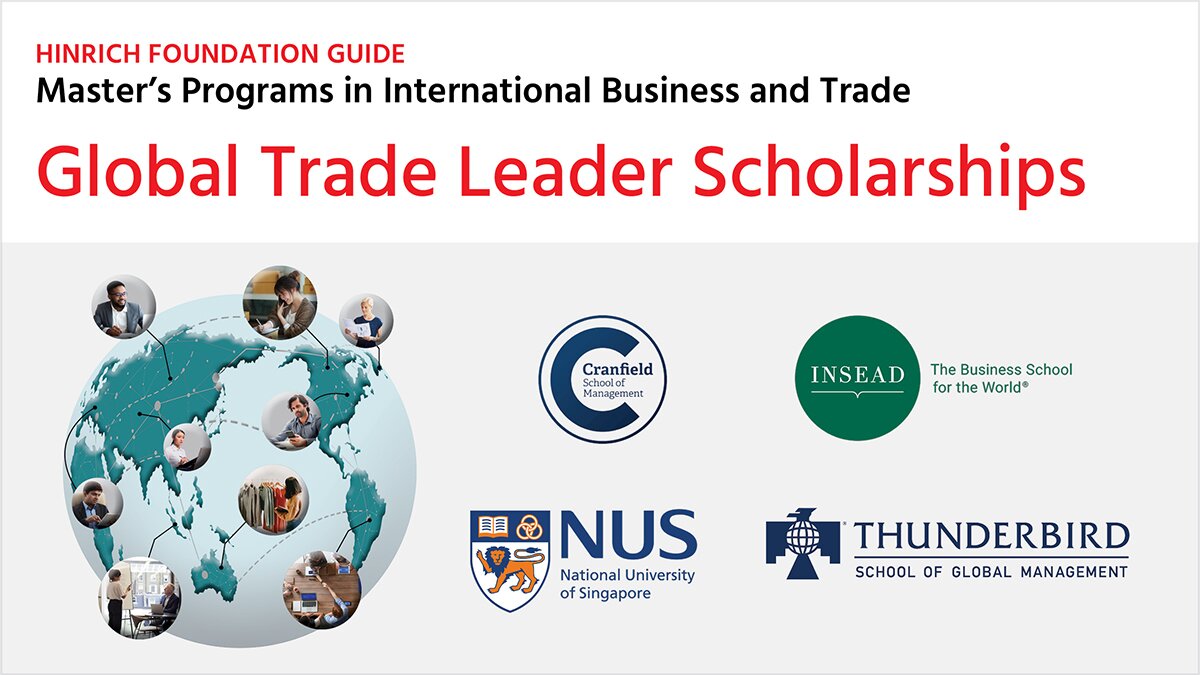
Key questions for the right program fit
Graduate education is a significant investment, requiring careful consideration of various factors to choose a suitable program. The Hinrich Foundation Guide offers key questions to help you evaluate program specifications, focus and financing.

Building leadership in trade

Key questions for the right program fit
Graduate education is a significant investment, requiring careful consideration of various factors to choose a suitable program. The Hinrich Foundation Guide offers key questions to help you evaluate program specifications, focus and financing.

Building leadership in trade
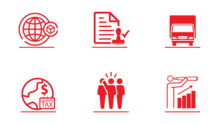
A. Trade content focus
Ask questions to ascertain that these 6 trade program content areas are reflected in the master’s program you are considering.
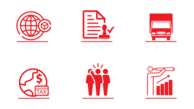
Ask questions to ascertain that these 6 trade program content areas are reflected in the master’s program you are considering.

1. Core trade program curriculum: Does the program curriculum specifically address international business and trade topics?
a. Cross-border trade: Courses that develop skills in market entry, sales, sourcing and marketing across international borders or territories.
b. Cross-border trade policy: Courses that develop your understanding of how trade agreements, regulations and practices imposed by governments and trade bodies affect cross-border business.
c. Cross-border logistics & supply chain management: Courses that prepare you to build resilient and efficient global supply chains, including topics such as manufacturing management, logistics, big data analytics and trade documentation.
d. Cross-border trade finance & accounting: Courses relating to the financial instruments, accounting and legal frameworks used by companies to facilitate international trade and commerce, and manage the associated assets, liabilities and risks.
e. Cross-border leadership & soft skills: Courses that lay the foundation for developing strong leadership and soft skills in cross-border and cross-cultural environments.
f. Future skills for cross-border trade: Courses preparing you to adapt to technologies that are changing the way trade is conducted that will be required knowledge for future trade leaders.
Take a deeper look at these 6 trade course content areas
2. Specialization: Does the program offer specialization tracks in international business or related fields that align with your trade career aspirations?
3. Capstone project / thesis: Can students focus their capstone project or thesis on international business or trade topics? Are there opportunities to work on developing solutions for companies engaged in cross-border business?

B. Trade program attributes
Prospective students should ask questions to confirm that master’s programs demonstrate excellence across these 6 trade program attributes to develop the skills, knowledge and networks for career success.

Prospective students should ask questions to confirm that master’s programs demonstrate excellence across these 6 trade program attributes to develop the skills, knowledge and networks for career success.

1. Industry aligned curriculum & engagement: Does the program prioritize industry engagement through guest speakers, collaborative research and internships to blend academic theory with real-world practice? Confirm that programs embed strong industry engagement initiatives to equip you for success in international commerce.
2. Practitioner professors: Confirm that the program is taught by professors with real-world experience in global trade to offer students insights, case studies and industry connections. This experience enhances learning by connecting theory with practice and providing relevant skills and networks.
3. Career services & employer recruitment: Ascertain that the program offers career advising, employer recruiting, job portals, recruitment fairs and mentorship programs. Are there reputable international trade companies actively recruiting graduates from the program?
4. Alumni support & network: A strong alumni support program is reflected in the leadership success of its graduates and a robust alumni network, offering lifelong connections and opportunities. Does the university offer ongoing alumni services, including mentorships, career workshops and international networking events?
5. International exposure: Ask if the program features a diverse student body from multiple countries and if it offers overseas study opportunities. This fosters cultural adaptability, global understanding and self-awareness, crucial to prepare you to work effectively in multicultural teams, build international professional networks and develop cross-cultural leadership skills.
6. Leading research: Confirm the faculty’s research covers topics such as trade policy, logistics, finance and technology, and is published and citated in reputable international journals. Strong publication records attract top scholars, providing students with research collaboration opportunities and mentorship.

C. Cost & financial aid
When evaluating master's program, ask questions to clarify both the upfront and ongoing financial commitments, as well as potential funding sources for your graduate study.

When evaluating master's program, ask questions to clarify both the upfront and ongoing financial commitments, as well as potential funding sources for your graduate study.

1. Tuition & fees: What are the total costs associated with the program, including tuition, fees, subscriptions, field trips, labs, international travel, exchanges and other expenses? What are the costs based on your student status: international, local, resident, national or exchange?
2. Cost of living: What is the estimated cost of living in the city where the university is located?
3. Availability of scholarships or fellowships: Does the program or institution offer scholarships or fellowships specifically for master’s students in international business programs?
4. Financial aid: Does the university or program offer financial aid or provide access to scholarships for local and/or international students?
5. Return on Investment (ROI): How do graduates perceive the ROI of the program in terms of career advancement and salary increase?
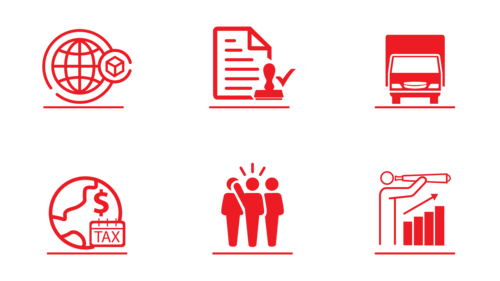
A. Trade content focus
Ask questions to ascertain that these 6 trade program content areas are reflected in the master’s program you are considering.


B. Trade program attributes
Prospective students should ask questions to confirm that master’s programs demonstrate excellence across these 6 trade program attributes to develop the skills, knowledge and networks for career success.

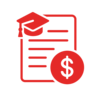
C. Cost & financial aid
When evaluating master's program, ask questions to clarify both the upfront and ongoing financial commitments, as well as potential funding sources for your graduate study.

Realize your full potential in global trade
Realize your full potential in global trade
- Study a master’s at a leading university
- Secure corporate sponsorship to access a Hinrich Foundation scholarship of up to US$25,000
- Develop industry connections for your career success
- Expand your professional global network








